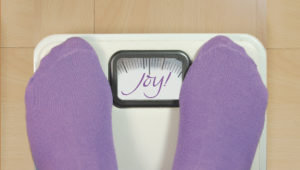Whether you’re just starting a new diet, or you’ve reached your goal, you still have to be clear about your long-term success plan.
But maintaining your weight doesn’t have to be an overwhelming project. Instead, it just involves having a few action steps that you follow every single day, for weeks and eventually years.
Just like brushing your teeth or taking a shower every day, you can define your daily approach to managing your weight. Making a 20-year plan helps you determine your exact method for sticking with your goals during the years ahead.
How I will live forever
Think about your goals for today as well as for the coming week. What actions do you plan to take during that time period?
Do you intend to follow a specific eating plan or diet program? Will you be exercising? If so, what will you do and how much? What types of things will you do for self-care?
Now, mentally, fast forward to how you plan to live during the next year. What about the next five years, and even 20 years?
Which of your current actions do you want to keep in your weight-management program forever? With those ideas in mind, get ready to make a long-term plan!
20-Year Plan for Living Healthy
At the top of a piece of paper, write the words, “My 20-Year Plan for Living Healthy.” (Or you can use the Diet Coach Cafe worksheet.)
Then dream big about what it will take to maintain your weight and your healthy lifestyle long-term. Following the directions with each of the next sections, develop a blueprint for how you’ll live for the next 20 years.
What I can do forever
In this section, plan a variety of actions you can do the rest of your life. Don’t be too restrictive such as saying you’ll follow a 1200-calorie eating plan.
You aren’t likely to track your calories every single day in the years ahead. Instead, plan realistic goals like eating low-fat, monitoring portion amounts, limiting alcohol, or exercising at least three times a week. Make a list of seven items you plan to do for the next 20 years.
Favorite foods
Choose three of your ultimate favorite foods. Then using an approach like “smaller amounts, less often,” determine how you can enjoy these foods without damaging your goals.
Decide how often you’d like to eat your favorites, then plan them into your program, not out of it.
Exercise
Set exercise goals that are reasonable but strong enough to challenge yourself. Be specific about your action plans as well as how you’ll stick with them.
Barriers
Identify potential high-risk areas that might keep you from maintaining your success. Think about current issues as well as past ones that could get in your way. Add a few thoughts on how you’ll cope with these problems so they don’t sabotage your efforts.
Crisis plan
What will you do if you begin to regain weight? Make a contingency plan for taking immediate action if you get into trouble with your goals.
Determine a “red flag” weight on the scale or a favorite pair of jeans that will trigger a mental alarm and set your crisis plan into motion.
Sample 20-Year Plan
Cindy had lost 75 pounds and was now starting a maintenance plan. She was worried that she’d gain the weight back as she’d done so many times in the past. Writing her 20-year plan helped her feel more prepared and confident about how she could maintain her success. Here is her 20-year plan.
What I can do forever:
- Eat low fat, limit to forty grams of fat a day or less
- Listen to my body’s signals for hunger and fullness
- Monitor portion sizes, keep them “reasonable”
- Eat my favorite foods using the principle of “smaller amounts, less often”
- Eat dessert only if it’s “special” or unusual
- Push myself to eat four to five servings of fruits and vegetables a day
- Keep learning new “tricks” and approaches that work for me
My three favorite foods: My plan for managing them
- Cookies, especially chocolate chip ones: Plan that I can have two cookies a week
- Lasagna—have it once a month: Watch for the point of “fullness”
- Cheesecake—once every two months: Savor it and appreciate the flavor
My exercise plans:
- Walk four to five times a week
- Do toning and strength-training exercises every other day
- Use a wall chart to record my progress as well as celebrate my success
Barriers and life issues that I will work on, including my plan for improvement:
- Stress at work—take breaks often, keep my exercise plan strong
- Emotional eating—review materials I’ve learned, add new coping skills
- Not exercising—keep records, build in non-food rewards such as music CD’s or a new book
Immediate plan if I begin gaining weight:
- Keep a food record. Count fat grams and decrease totals for the day to 40 or less
- Exercise more often, up to five or six days a week
- Evaluate the emotional issues affecting my eating patterns
